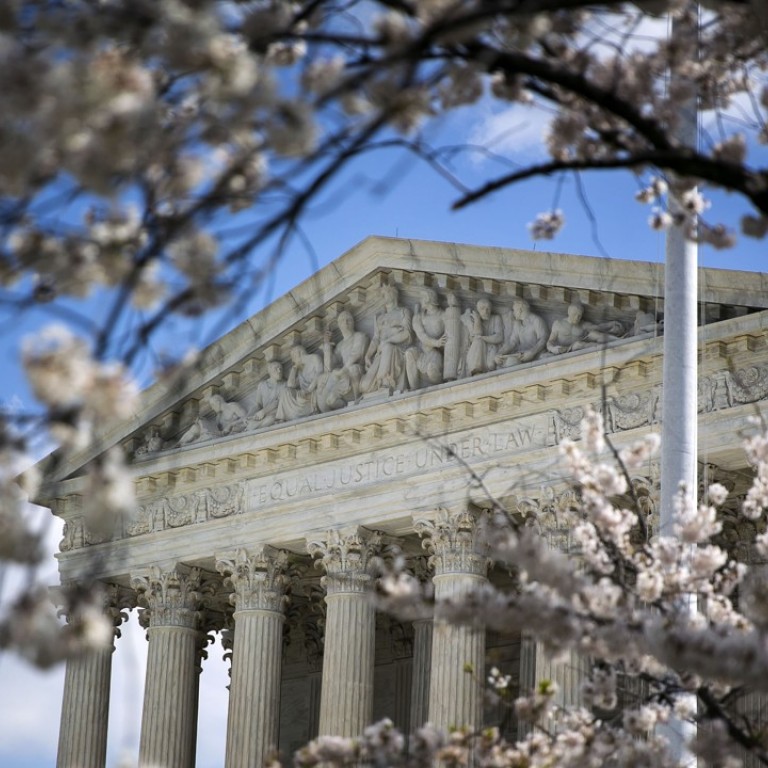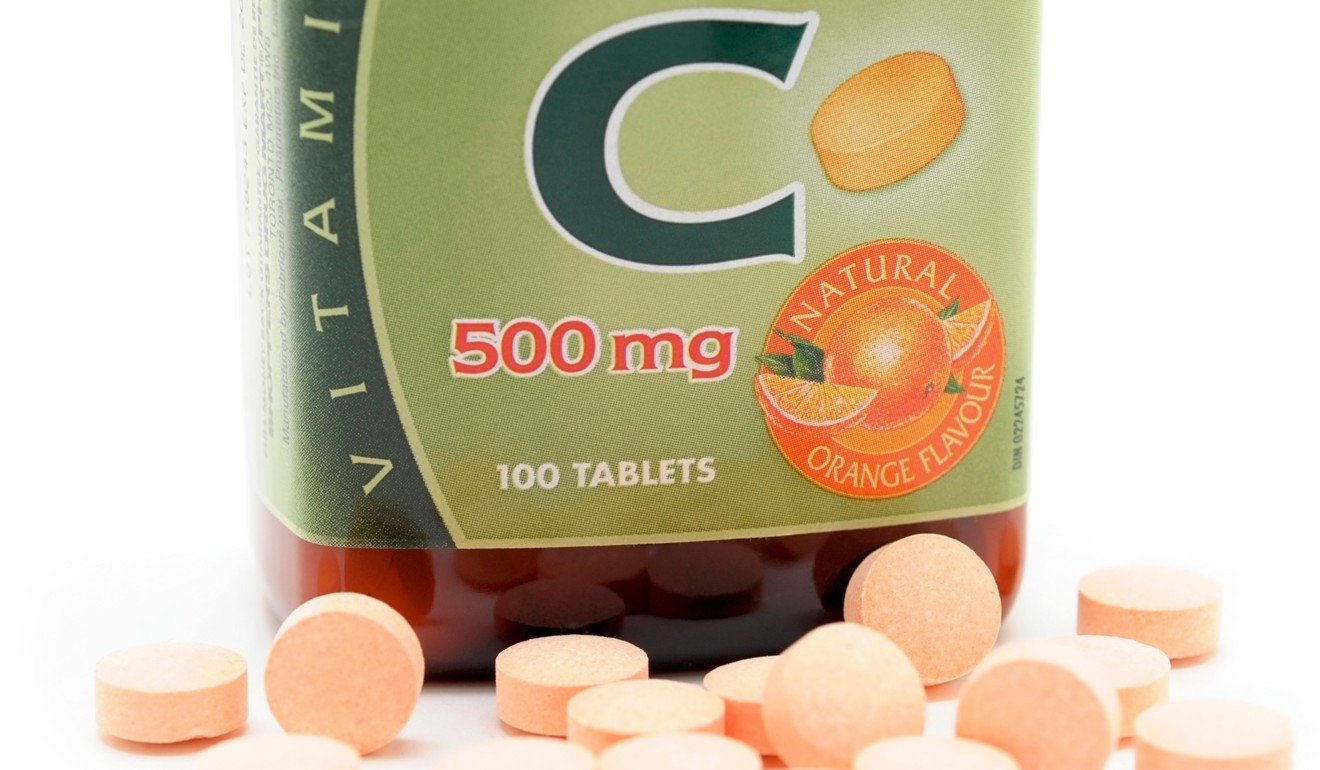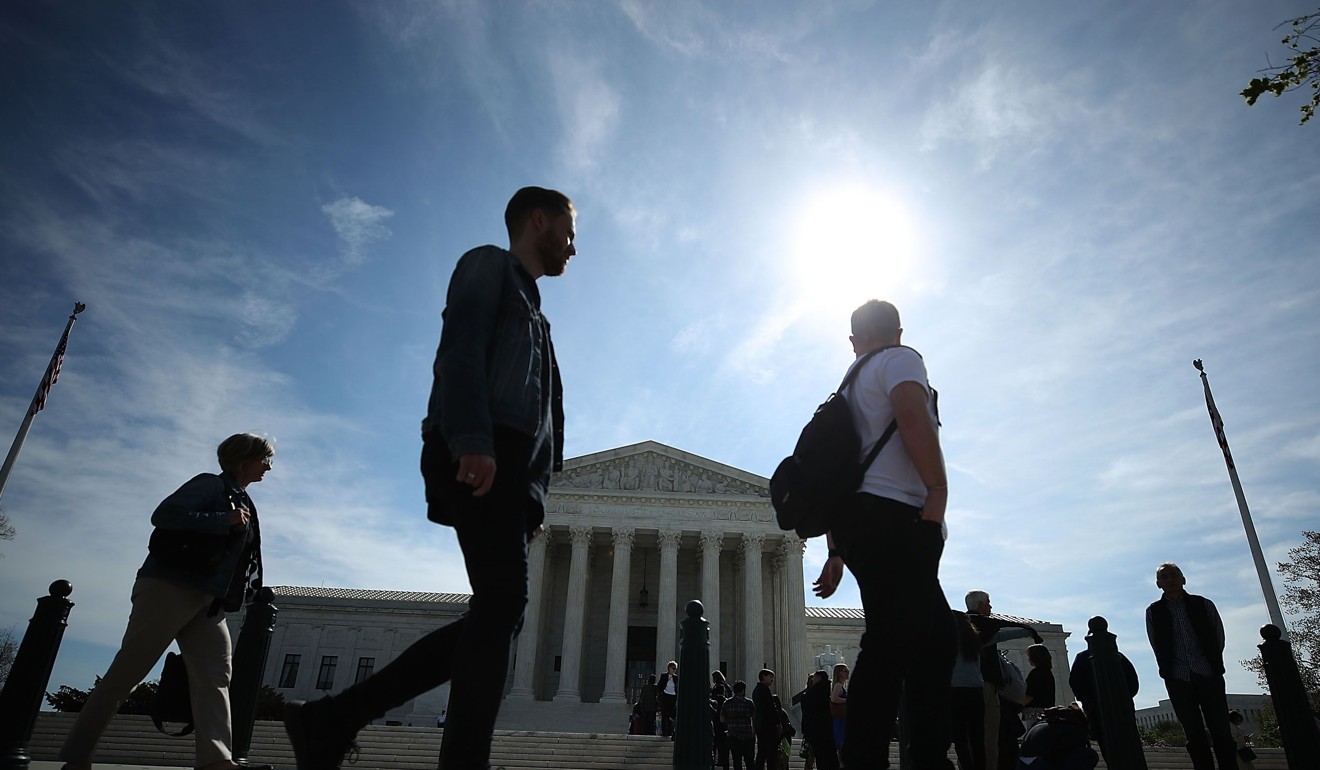
How a Supreme Court fight over vitamin C holds a key to what Chinese law means in America
Highest US court to rule on whether it should defer to China’s own view of its law in anti-trust hearings
China is fighting “suspicion”, “hostility” and “disrespect” in Washington, according to Beijing’s commerce ministry, which is facing a US Supreme Court battle in an antitrust case.
The ministry levelled those charges against a lower federal district court, which ruled in 2006 against a group of Chinese vitamin C producers that were accused of illegally colluding to fix the price and supply of their products.
The defendants have been in legal limbo ever since as the case has made its way through the US legal system.
The legal fight has come under renewed scrutiny not only because it was argued in the country’s highest court on Tuesday, but also because China has become a target for the other two branches of America’s government.
At each stage of the case, China’s commerce ministry – or “Mofcom” – has filed an amicus brief to the US court arguing that the defendants were only following mainland Chinese law and could not obey both that and US law.
In 2014, an appeal court reversed the district court’s ruling, arguing that foreign governments were entitled to “binding deference” regarding their own laws when courts interpret how US law applies to foreign companies.
“If you refuse to defer a statement by a foreign government about its own laws you’re saying one of two things: you’re saying the foreign government is either stupid or lying,” said Carter Phillips, a partner at Sidley Austin LLP, who leads the Chinese commerce ministry’s defence team.
“Neither of those is a particularly appealing position for a court to be taking.”
In hearing the case – brought by Animal Science Products against Hebei Welcome Pharmaceutical Company – the Supreme Court will re-examine the legal principle of binding deference that had shielded the Chinese defendants.
The ruling could ultimately determine how much latitude US courts will have to question representations by foreign governments about their own laws.
During Tuesday’s hearing Chief Justice John Roberts examined critically the degree of “respect” that should be shown to foreign governments interpreting their laws in a US court.
“I don’t understand this constant emphasis on respectful. It doesn’t mean that you can’t disagree, right? I mean, you know, ‘with all due respect’ usually means the person’s about to say you don’t know what you’re talking about.”
Justice Elena Kagan said forcing federal courts to give “binding deference” to foreign governments’ representations of their own laws would differ from how the rest of the world operates.

The appeal court’s ruling said the need for deference to representations by foreign governments about their own laws arises partly from the need for “international comity”.
Ironically, the atmosphere in Washington has recently been anything but courteous when it comes to relations with Beijing.
The executive branch, led by President Donald Trump, has announced punishing tariffs for imports of Chinese goods in a bid to reduce a massive trade imbalance in Beijing’s favour.
Meanwhile, both Republicans and Democrats in the legislative branch are aiming to pass laws aimed at making it more difficult for Chinese companies to acquire US technology.
Trump’s commerce department last week activated a ban on sales by American companies to ZTE, the Chinese telecommunications equipment maker, to punish the company for allegedly making false statements in an investigation into its dealings with Iran.
However, the US Supreme Court is less vulnerable to the politics of foreign relations than the other US government branches.
As such, the arguments by Animal Sciences and other petitioners in the case, which brought the complaint against Hebei Welcome and other companies, centre on the validity of arguments China’s commerce ministry has made so far in four previous amicus briefs.
The Chinese firms were found guilty of breaching antitrust laws and the district court entered a US$147 million judgment against them.
But they have argued they were only obeying Chinese law and the commerce ministry’s submissions supported that by citing 1997 laws that stipulated a minimum export price for vitamin C to avoid anti-dumping cases brought by other World Trade Organisation members.

The question before the court is not whether the vitamin C producers colluded on prices. That they did so is not disputed. The plaintiffs have been trying to prove that Chinese law did not force the producers to do so when Animal Sciences and the others bought their product.
The Supreme Court will likely reject any “blind deference” or wholesale acceptance of Mofcom’s representation, said George Hay, an antitrust expert who teaches at Cornell Law School. However, Hay added, the court will give “weight” to Mofcom’s position because there are “not a lot of independent sources on what Chinese law is”.
The court, he added, “will decide either that it was reasonable under the circumstances, having seen China’s well-documented position and given the opacity of Chinese law or the Chinese system, it was reasonable to take the Chinese interpretation, or they might say … we’re not going to flatly prohibit the plaintiffs from trying to find a rebuttal case.
“But at the end of the day, it will likely weigh very heavily the Chinese position.”
Michael Gottlieb, a Boies Schiller Flexner partner who leads the team representing the petitioners, said that the 1997 laws cited by the ministry had been replaced, in 2002, by regulations that would have allowed Hebei Welcome and the other respondents to opt out of a trade association that was allowed to coordinate pricing.
That change, which occurred shortly before Animal Sciences and its fellow Supreme Court petitioners bought vitamin C from the respondents, gave producers of the additive in China more flexibility in setting their prices individually.
“There were a lot of important questions that the Mofcom interpretation didn’t answer,” Gottlieb said.
“The district court found that Mofcom had, for example, not relied on the most relevant sources, had relied upon the provisions of a law from 1997 that had been repealed and had not informed the district court that there were later legal authorities that had been enacted that were very different from 1997.”
But Phillips interpreted the 2002 change differently.
“There’s nothing in the regulations saying that the individual producers can opt out [of minimum pricing set by the government],” he said.
A ruling is expected to be handed down before the end of June.
Hay, of Cornell, said that the Supreme Court was unlikely to reinstate the 2006 district court ruling because of the amount of documentation Mofcom provided in early adjudication rounds, but that it may send the case back to the district or appellate court for further examination.
“They might say ‘We won’t completely eliminate the possibility of some independent inquiry that shows clearly what Chinese law is but you better have something pretty good because otherwise we’re going to defer to what the Chinese say their law is,’” he explained.
Justice Ruth Bader Ginsburg, also raised that possibility in her questioning Tuesday.
“if you’re right, that the court of appeals should not have taken what the Chinese ministry said as conclusive, then wouldn’t the proper bottom line be a vacate and a remand so the Second Circuit can reassess, with the understanding that what the ministry said is not conclusive?” Ginsburg asked Gottlieb.
“We do think that vacating and remanding would be an appropriate disposition,” Gottlieb responded. “However, as we pointed out in our brief, the Second Circuit … described what the district court had done as completely and reasonably appropriate.”

